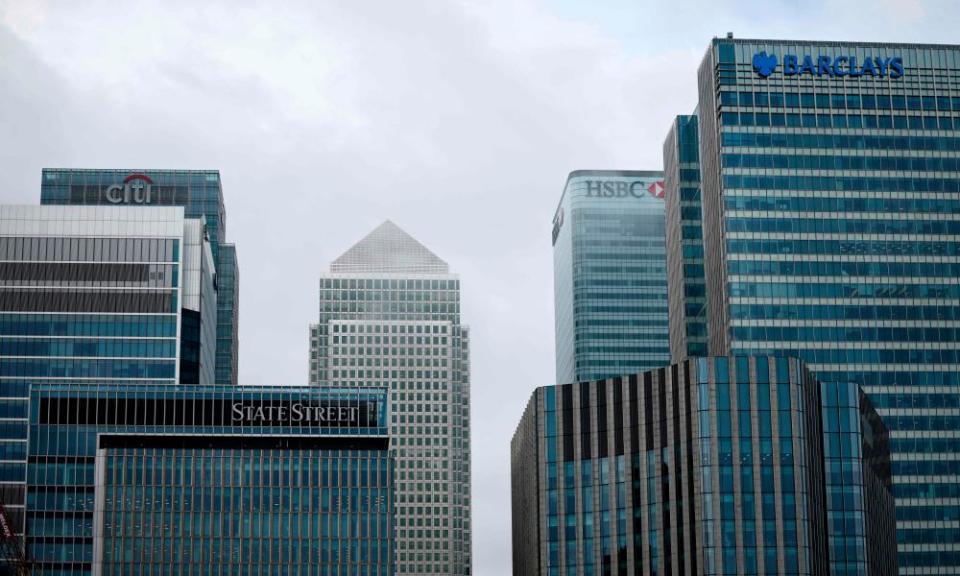Sunak to reform stock market to shore up City of London's position

Rishi Sunak will pave the way for sweeping reforms of the stock market to attract more fast-growing companies to list in the UK, amid the growing risk to London’s status as a leading financial centre after Brexit.
In a development to coincide with the budget on Wednesday, the chancellor will publish the findings of a landmark review into UK listings rules to boost Britain’s attractiveness as a place for firms to grow and be taken public.
Led by the former EU financial services commissioner, Lord Jonathan Hill, the overhaul could introduce the most significant reforms in the City of London in decades.
It comes amid concern at the heart of government that Britain risks losing out to international rivals such as Amsterdam, New York and Hong Kong when it comes to hosting stock market debuts for fast-growing technology firms, and as the chancellor and prime minister attempt to frame the country as a destination for global business after Brexit.
Commissioned by the chancellor last year to further enhance the UK’s position as an international destination for share listings, the report proposes more than a dozen reforms that are designed to make it easier for innovative firms to list in the UK.
At present the most significant companies listed in London are either financial or more representative of the old economy of mining, energy and natural resources. The US technology giant Apple was worth more at one point last summer than the combined value of every company in the FTSE 100.
Amsterdam overtook London as Europe’s largest share trading centre earlier this year, and as experts say the symbolic blow could be followed by the City losing jobs as well as more business owing to Brexit.
Lord Hill told the Guardian he believed the strength and depth of London’s financial service industry meant it would be difficult for competing European cities to topple its status as the continent’s leading hub for global finance. However, he said rule changes were still needed to maintain and increase competitiveness after Brexit.
“The worst thing for London to do is to sit here waiting to see what happens and hoping that Europe will give us equivalence and everything will come out all right in the wash.
“I’m not a Singapore-on-Thames man, but the opportunity to set rules and regulations more speedily, flexibly and proportionately in areas like sustainable finance and technology, I do think there is an opportunity there,” he said.
The review calls for a shake-up of listings rules to allow dual class share structures on the London Stock Exchange’s premium segment, which would give directors and company founders enhanced voting rights.
The changes would enable such listings to be eligible for inclusion in the blue-chip FTSE indices, which attract a wider pool of investors than the standard segment of the London exchange.
Other measures include cutting the amount of shares a company must sell to the public from 25% to 15%. Steps are also recommended to liberalise rules regarding special purpose acquisition companies, known as Spacs, which are “blank cheque” shell companies launched to raise money from investors first and then hunt for a business to buy later.
Such stock market listings have become one of the most prominent trends in global finance in the past year, with a host of Spacs floating in New York and London.
The rule changes are intended to persuade firms such as Cazoo, the UK-based online car platform, to consider a London listing. The firm, which could be valued as high as £5bn when it goes public, has been reportedly eying a merger with a New-York listed Spac as an alternative.
Faced with increasing competition from abroad, Hill also recommended that the chancellor produce an annual report to parliament each year on the competitive position of the City.
However, the plan to reform the listings rules could prompt concern that Britain is downgrading standards of corporate governance in favour of chasing high-profile trophy listings – echoing the debate over the mooted $2tn listing of the petrol group Saudi Aramco.
Hill said he had recommended safeguards to maintain investor protections, while arguing that it made no sense to have a theoretically perfect listing regime if, in practice, users increasingly choose other venues.
“The recommendations in this report are not about opening a gap between us and other global centres by proposing radical new departures to try to seize a competitive advantage. They are about closing a gap which has already opened up. All the recommendations are consistent with existing practices in other well-regulated financial centres in the USA, Asia and Europe,” he said.
Sunak said the report had delivered bold ideas to help enhance the UK’s reputation after Brexit. “The review has more than delivered and I’m keen we move quickly to consult on its recommendations, cementing the UK’s reputation at the front of global financial services,” he said.

 Yahoo Finance
Yahoo Finance 